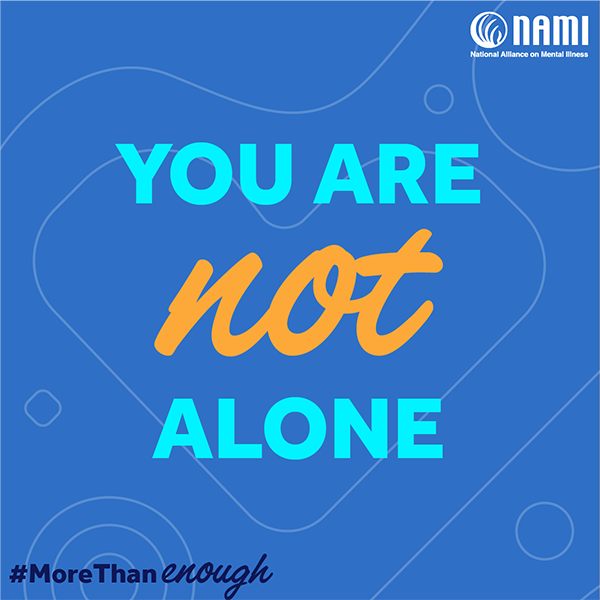Mental Health Awareness Month | May
Mental Health Awareness Month has been observed in the U.S. since 1949. Every year during the month of May, the National Alliance of Mental Illness (NAMI) joins the national movement to raise awareness about mental health. NAMI helps fight stigma, provide support, educate the public, and advocate for policies that support the millions of people in the U.S. affected by mental illness.
It’s important to measure how common mental illness is, so we can understand its physical, social, and financial impact — and so we can show that no one is alone. The statistics below are powerful tools for raising public awareness, stigma-busting, and advocating for better health care:
- 1 in 5 U.S. adults experience mental illness each year
- 1 in 20 U.S. adults experience serious mental illness each year
- 1 in 6 U.S. youth aged 6-17 experience a mental health disorder each year
- 50% of all lifetime mental illness begins by age 14, and 75% by age 24
- Suicide is the 2nd leading cause of death among people aged 10-14
This year, NAMI is celebrating Mental Health Awareness Month with the “More Than Enough” campaign. This campaign is an opportunity for all of us to come together and remember the inherent value we each hold — no matter our diagnosis, appearance, socioeconomic status, background, or ability. We want every person out there to know that if all you did was wake up today, that’s more than enough. No matter what, you are inherently worthy of more than enough life, love, and healing. Showing up, just as you are, for yourself and the people around you is more than enough.
Knowing the warning signs and symptoms of mental illness can help you take charge of your mental health. Some common signs include:
- Excessive worrying or fear
- Feeling excessively sad or low
- Confused thinking or problems concentrating and learning
- Extreme mood changes, including uncontrollable “highs” or feelings of euphoria
- Prolonged or strong feelings of irritability or anger
- Avoiding friends and social activities
- Difficulties understanding or relating to other people
- Changes in sleeping habits or feeling tired and low energy
- Changes in eating habits such as increased hunger or lack of appetite
- Changes in sex drive
- Difficulty perceiving reality (delusions or hallucinations, in which a person experiences and senses things that don't exist in objective reality)
- Inability to perceive changes in one’s own feelings, behavior, or personality (”lack of insight” or anosognosia)
- Overuse of substances like alcohol or drugs
- Multiple physical ailments without obvious causes (such as headaches, stomach aches, vague and ongoing “aches and pains”)
- Thinking about suicide
- Inability to carry out daily activities or handle daily problems and stress
- An intense fear of weight gain or concern with appearance
If you or someone you know is struggling or in crisis, help is available. Call or text 988, or chat 988lifeline.org to reach the 988 Suicide & Crisis Lifeline.
To learn more about mental illness and Mental Health Awareness month, visit https://www.nami.org/.../Mental-Health-Awareness-Month
Credit: NAMI
